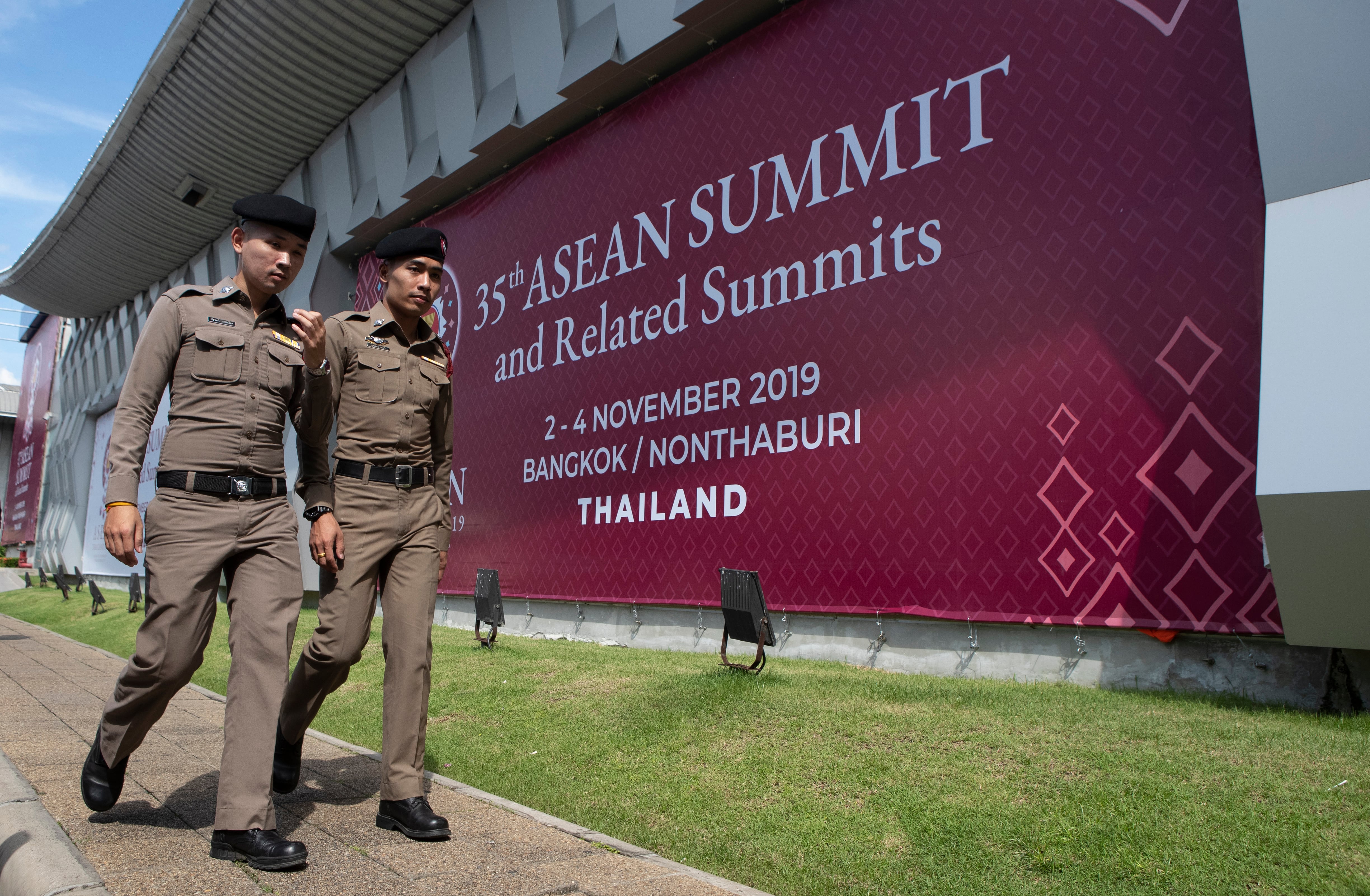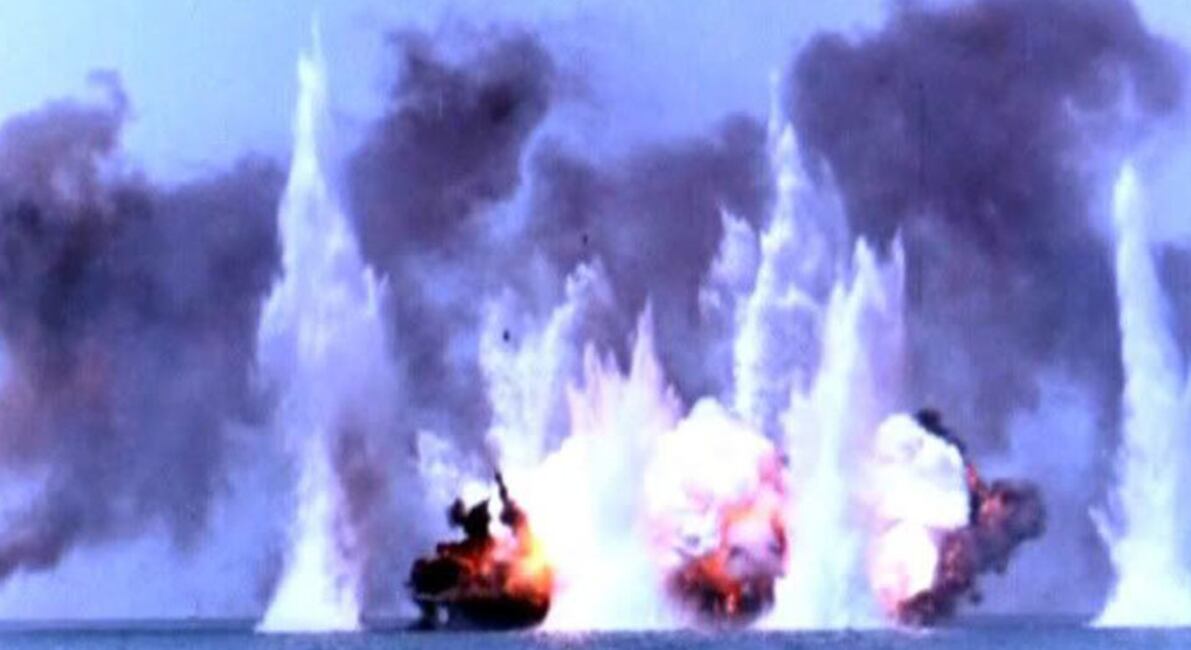NONTHABURI, Thailand — Southeast Asian leaders are making last-minute efforts with wealthier neighbors led by China to conclude negotiations on one of the world’s largest free-trade accords and will praise progress in talks on a nonaggression pact in disputed waters when they meet for a summit in Thailand.
But intractable differences, often hidden behind handshakes and ceremonial photo-ops, have stymied those efforts by the 10-member Association of Southeast Asian Nations.
President Donald Trump is skipping the flurry of meetings in a Bangkok suburb this weekend in a palpable absence that could be viewed in the region as a snub. He is sending national security adviser Robert O’Brien, who is not a member of his Cabinet, and Commerce Secretary Wilbur Ross.
“President Trump is dealing with immense political troubles at home and that also plays into concerns over American wherewithal and commitment to this part of the world,” Manila-based political analyst Richard Heydarian said.
Such an absence "helps China to portray the United States as an unreliable regional hegemon" and establish a much more "China-centric" order in the region, he said.

A major development is the possible announcement of a conclusion to seven years of negotiations for a free-trade pact called the Regional Comprehensive Economic Partnership.
China is among those leading the negotiations along with ASEAN members and their dialogue partners Japan, South Korea, Australia, India and New Zealand.
The U.S., which prefers bilateral trade deals, is not included.
A successful deal would boost free trade in a time of protectionism and further integrate China with many of Asia’s most vibrant economies.
The talks were progressing toward a conclusion last month when new issues cropped up, which may again delay the signing to next year, Philippine Trade Secretary Ramon Lopez told reporters.
"It can still happen ... if we decide on a way forward," Lopez said, without elaborating on the disagreements, which concern technical details and rules on market access, competition and investment.
Some countries such as India have expressed concern that the deal could flood their markets with cheap Chinese goods and undermine local manufacturers.
RCEP will be one of the biggest regional trade blocs if all 16 nations join, covering some 45 percent of the world’s population and about a third of global GDP, with projected trade of more than $10.3 trillion, or nearly 30 percent of the world total.
ASEAN leaders will welcome the completion in July of the first of three rounds of discussions on a proposed "code of conduct" that aims to restrain aggressive actions in the disputed South China Sea.
Territorial rifts involving China, Taiwan and ASEAN members Brunei, Malaysia, the Philippines and Vietnam have emerged as the most divisive issue in recent years.
China and its ASEAN allies led by Cambodia have steadfastly refused attempts to use the annual summits as an arena to rebuke Beijing's increasingly assertive actions, including the construction of seven islands on disputed reefs that U.S. officials say could serve as military platforms to intimidate rival claimants.
China claims virtually the entire sea, a vital waterway for global commerce, and has opposed naval and aerial patrols by the U.S. and its allies as American interference in an Asian problem.
Beijing also regards the U.S. concept of a free and open Indo-Pacific region as a strategy to contain China.
"We emphasized the need to maintain an environment conducive to the COC (code of conduct) negotiations, and, thus, welcomed practical measures that could reduce tensions and the risk of accidents, misunderstandings and miscalculation," said a draft of a summit communique, a copy of which was seen by The Associated Press.
Two Southeast Asian diplomats told the AP that Vietnam wanted the inclusion of a phrase reflecting China's encroachments into waters where Vietnam has exclusive rights to exploit resources. China, through Cambodia, opposed any such move.
Vietnamese diplomats questioned progress on the code of conduct when China continues to intrude into its waters.
A Chinese diplomat replied by saying Vietnam should not be allowed by ASEAN "to hijack the COC process," said one of the two Southeast Asian diplomats, who both spoke on condition of anonymity because they were not authorized to speak publicly about the issue.
RELATED

David Stilwell, the U.S. assistant secretary of state for East Asia and the Pacific who will be attending the meetings as part of the U.S. delegation, urged ASEAN to follow the example of Vietnam and put up a stiffer resistance to China’s militarization of the area.
He told a forum in Malaysia on Thursday that the concept of a free and open Indo-Pacific region was not a move to expand U.S. domination but reflected Washington's "enduring engagement" to make the area prosperous.
"This is your turf, this is your place. Vietnam has done a good job of pushing back. I would think that regarding ASEAN centrality ... (the grouping) would join Vietnam to resist actions that are destabilizing and effecting security," he said.
Former Philippine Foreign Secretary Albert del Rosario, who spearheaded the filing of a complaint against China at an international tribunal that in 2016 ruled against Beijing’s territorial claims, said ASEAN should insist on making that ruling a core of the code of conduct.
Such a move would surely be opposed by China and its allies, although they generally express support for the rule of law.




